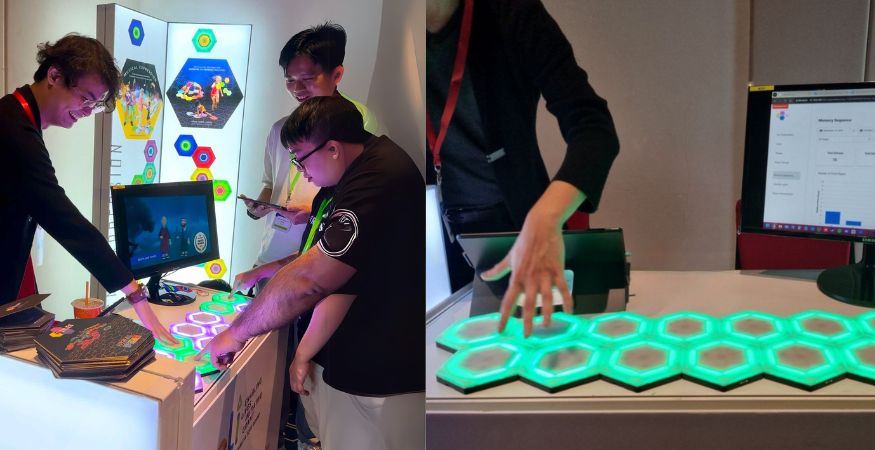Problem Statement
Due to the lack of capacity at Adult Disability Care Services (ADCS) for eligible SPED graduates to enroll into, and the lack of opportunities for persons with disabilities placed in ADCS to engage in learning indpendent living or productive activities, they often only carry out very limited activities and thus, do not get the chance to reinforce their learning.
Solution
The solution is to create an assistive playware device and platform to maintain and improve functional and cognitive abilities of its users through game-based learning. iTILES consists of 8 wireless tiles per set, with input sensing and multimodal output capabilities. The users will get audio, visual and haptic feedback from the tiles by touching, stepping or shaking the tiles. An accompanying mobile application can track and analyse the user's performance and provide insights to both users and caregivers.
Outcomes
iTILES seeks to:
- Enhance users' motor and cognitive skills such as spatial orientation, memory and attention span, as well as social skills
- Empower users to live independently
- Increase efficiency for caregivers to assist in other areas and offset the load of rehabilitation and training
-
Grantee
Digital Dream -
Beneficiaries
Persons with Disabilites
more about grantee
Digital Dream is a social enterprise that provides creative digital solutions for schools, institutions, elderly homes, youth groups, commercial spaces and offices. We work closely with special needs education providers, ensuring exceptional service, safety and security of both teachers and clients. With a team of varying expertise and background, we encourage creativity and innovation in our solutions.
Digital Dream is collaborating with Embodied Sensing Pte. Ltd and Augmented Human Lab (NUS School of Computing) for the iTILES project.

